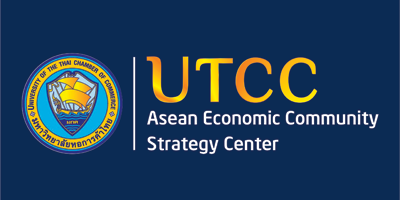Myanmar: MRF, IRD to discuss withholding tax
The Myanmar Rice Federation (MRF) is going to negotiate with officials from the Internal Revenue Department (IRD) about withholding tax on high-income agri-businessmen, U Nay Lin Zin, joint secretary of Myanmar Rice Federation, told The Myanmar Times.
The IRD is preparing procedures to levy WHT on agri-businesses with an income of K500,000 and above after deductions, a senior official from the IRD told The Myanmar Times.
Therefore, a meeting is being arranged to clarify the situation, U Nay Lin Zin said.
“Some said there is an instruction to levy withholding taxes on farmers. It is not a clear tax that can be levied by an instruction letter. Setting 5 lakh [K500,000] as the taxable level can cause corruption like making separate vouchers for income.
“It is necessary to know which policy and law that tax is based on. That is why we are arranging to meet with the IRD,” he explained.
The IRD issued a notification about the WHT on May 22 this year, explaining that the WHT is the tax deducted from the revenue of both sellers and buyers, which are then paid to the government through the buyers – the sellers essentially pay income tax in advance.
Withholding tax is also called retention tax.
If a business is not included in the list under the notification, an income of up to K500,000 is not taxed. However, if the income exceeds K500,000, a withholding tax will be levied as per prescribed rates.
The WHT rate is 2 percent for local residents and 2.5pc for foreigners.
Therefore, agri-business businesses will have to pay a 2pc withholding tax on net income after deductions, if their income exceeds K500,000, the IRD’s director general told a local media.
But for farmers, taxes will be levied only on net income after production costs and relief for co-living parents.
Spouses and children are deducted from the total income, like salary income, the director general of the IRD said.
Withholding tax on farmers can be an issue when closing deals between buyers and sellers, U Nay Lin Zin pointed out.
“Withholding tax can create difficulties in closing deals at sales. The sales between the farmers and mill-owners are clear. But sales with brokers are not. Will that broker deduct and pay? There are a lot of different factors,” he explained.
In practice, there hasn’t been any deduction for the WHT yet, U Thein Aung, president of Freedom of Farmers League, said. Farmers will find it difficult to follow that instruction, he added.
“Agriculture is the only foreign income-generating manufacturing sector in Myanmar. In the case of paddy, farmers had faced losses in their previous years and they have just enjoyed the profits this year. As they are taxed only when they achieve profits, I would like to ask whether the state could pledge that the losses of the farmers during previous years would be compensated.
“Since agriculture is not like other sectors, it won’t be easy to follow a regular taxation framework. Until now, there hasn’t been any implementation of a withholding tax on the ground. If the IRD tries to levy the tax, we will raise our objection to the relevant authority,” U Thein Aung said.
Farmers may lose the determination in reforming and developing the agriculture sector because of taxation rate, he said.
“If the WHT is actually levied, the farmers may lose their enthusiasm and production may fall. When they levied commercial tax [CT] on the exporters previously, it became a burden for farmers. Therefore, even CTs should not be levied. Income tax on farmers is even more inappropriate,” he continued.
Acreage, paddy production and pulses in Myanmar have declined since the 2014-15 fiscal year, the MRF and Myanmar Pulses, Beans and Sesame Seeds Merchants Association stated. Export earnings have increased only due to the rise in export price.
Last month, the Ministry of Planning and Finance frequently made it clear through the local media that Myanmar is the lowest tax rate country among ASEAN members. In the 2017 Union Tax Law, taxes on revenues and ownership are targeted to be K2382 billion and an income tax is to be K490 billion.
As the largest country in mainland Southeast Asia, Myanmar has fertile lands and a significant potential to increase its production, yields and profits in agriculture.
Source: http://www.mmtimes.com/index.php/business/26261-mrf-ird-to-discuss-withholding-tax.html


 English
English




